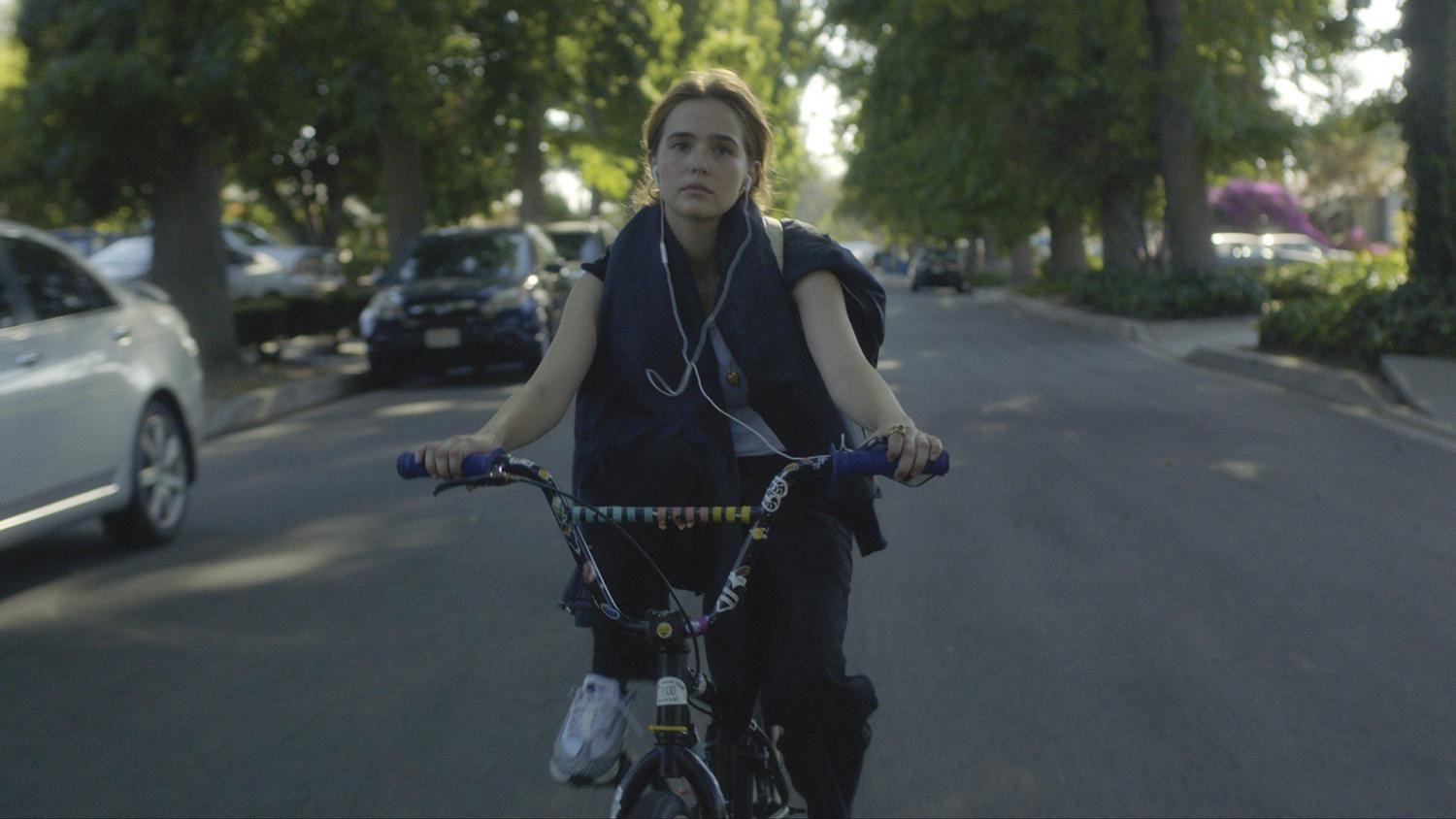Tribeca 2017: ‘Flower’ Nips at Poignant Buds
Zoey Deutch plays Erica Vandross in “Flower,” directed by Max Winkler.
April 27, 2017
At 17 years old, Erica Vandross only has two priorities: making money and having sex. These desires become the driving force in “Flower,” a new feature directed by Max Winkler. The film stars Zoey Deutch, Adam Scott and Joey Morgan, and revolves around the intertwining of Erica’s (Deutch) sexual curiosity and the common woes of a less-than-affluent teenager. She and her friends use sexual favors to lure older men, then use their underage status to guilt their victims into giving them money.
Erica hopes to raise enough money to bail her recently incarcerated father out of jail, but those plans are derailed once her perverse mother’s (Kathryn Hanh) boyfriend moves in, bringing with him a mentally unstable son (Morgan), who strikes up an unusual bond with his potential step-sister.
From there, Winkler’s film goes on a journey of emotional and tonal shifts, ranging from adorably comedic to deathly serious. It’s through this fluctuation that “Flower” truly tries to blossom into a complex piece that examines the mental trials and tribulations of both free-spirited and closed-off individuals, and most of the time it manages to pull it off. This style delineates the film into a general label of “dark comedy” — full of sharp dialogue, quirky mannerisms and hot takes on serious social issues played with just the right amount of gravitas to decrease the jarring effect.
Some viewers might react to a film about a teenage girl scamming older men using sex with disbelief, but Winkler manages to ground it all in unexpected and hard-hitting realism. Never mind how crass and carefree her attitude might be, for every ostensibly shallow joke Erica makes about blowjobs, another subtlety reveals her fears about her father, her future and ironically enough, sex.
Although it doesn’t become clear until midway through the film, “Flower” is a piece built around personal growth. The theme impacts not just the protagonist, but those around her. These gradual character growths might help describe the visual appeal of the film. Shot in handheld, at first the images look very muted, granting the California desert setting a copiously dry aesthetic. However, with the mature growth of the narrative, frames are filled with deeper and cooler colors. This might be unintentional, but it certainly matches the overarching idea of “coming into full bloom.”
Deutch continues to show she’s a major talent to watch. Channeling the cool-but-complicated-teen aura of actors like Ellen Page in “Juno,” Deutch sculpts Erica into quite a nuanced character. She catches the audience’s attention with her snarky and crude attitude, but truly captivates with her anxieties and fears. It’s a deceptively powerful performance, bleeding over into all the interactions in the film. Deutch’s scenes with Scott’s character are the highlight of both the comedic and dramatic weight of the film.
Money and male anatomy are what Erica focuses on at the film’s start. But by the finale, it’s a vast array of life’s trials and tribulations, which define “Flower” as a movie which blossoms with the tenacity of youthful curiosity.
“Flower” premiered at the Tribeca Film Festival Thursday, April 20.
Email Matthew Holman at [email protected].


























































































































































